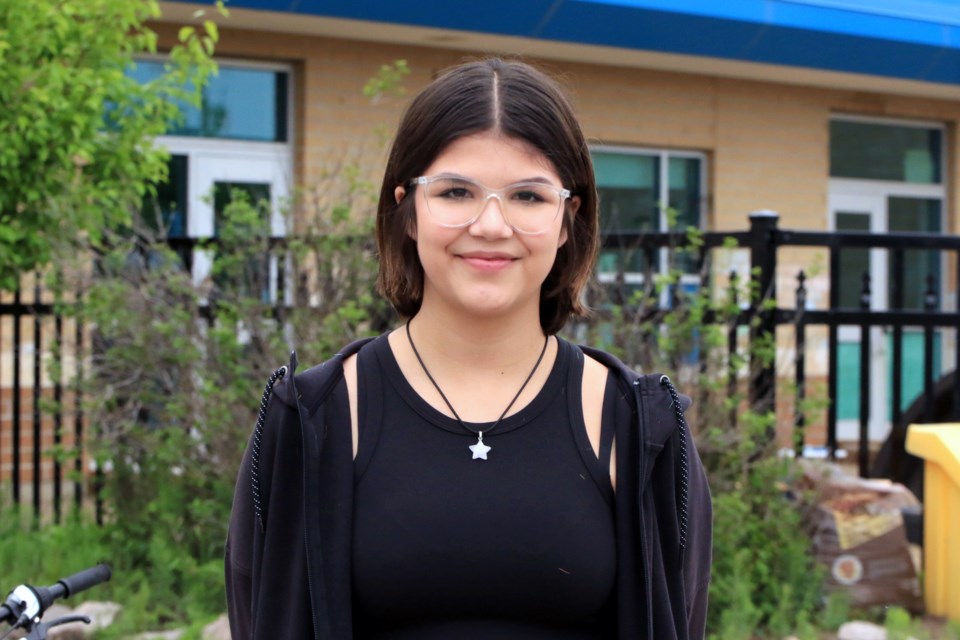THUNDER BAY – Challenged to come up with a history project for her Grade 8 class, Annika Harrison decided it was time to have a very frank discussion with her father.
The 13-year-old student at Woodcrest Public School knew her father, now in his mid-60s, had been traumatized while attending the Pelican Lake Residential School after being taken from his family in Lac Seul First Nation and forced to study the teachings of another culture.
For months on end, he was away from his loved ones, and the aftereffects still resound today.
Annika decided to produce a documentary about her father’s experience growing up, a huge contrast to the elementary school experience she’s going through in Thunder Bay.
When she turned her project in for grading, it blew her teacher away.
Ultimately, it wound up in the hands of the National Centre for Truth and Reconciliation, one of 25 youth from across the country recognized with an award for showcasing what a reconciled Canada looks like to them.
“I was really surprised because in the art and essay stream there were only about 11 chosen in all of Canada,” Annika said, after attending the National Centre for Truth and Reconciliation’s Imagine a Canada celebration last month at the Canadian Museum of Human Rights in Winnipeg.
“I was really shocked that I had been selected, and honestly, I still can’t believe it. The celebration, it was really fun. I was nervous to speak in front of a bunch of people, but to be there, with all of the Elders and Manitoba dignitaries and other people that had done these awesome projects and art, it was really special.”
Making the documentary was no easy feat.
Listening to her father discuss the past was tough, Annika said.
“It was definitely hard to hear his story, but I was really honoured that he was sharing it with me and I was really determined to portray his experiences in the best way possible,” she said, adding it brought the two of them closer together.
“Yeah, I feel it did. I grew up with him. I knew he went to residential schools, but I didn’t know what happened there. I think learning about that, it really made me understand how it was.”
Annika said while most Indigenous students don’t experience anything like what her father and thousands of other children experienced during the residential school era, the generational trauma is still being felt today.
Learning that Indigenous children were often experimented with was a horrific discovery, she said.
“It really made me realize how different residential schools were, compared to schools nowadays. In my documentary, my dad talked about his first days there and how he got there. I was just in disbelief that they would rip him away from his home and he wouldn’t see his family for most of the year. That must have been really hard for him and it was really hard to hear about those stories,” Annika said.
Teacher Ashley Barnwell said it’s an understatement to claim Annika went over and above with her project.
“When I assigned this project in September, it was really just a history project, to learn a little bit more about the development of Canada and a little bit about what had happened, specifically residential schools,” Barnwell said.
“I kind of gave them a choice on how they wanted to present and compare the information and deliver it, and she blew us away with her documentary. We all cried. It was incredibly powerful and just so raw and real. It was different from everybody else’s because she had first-hand experience.”
